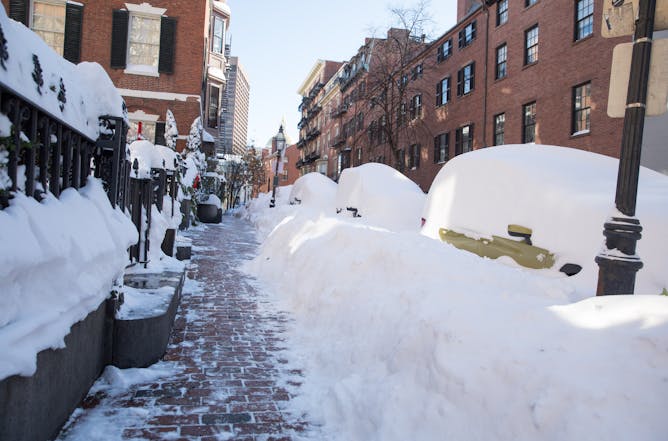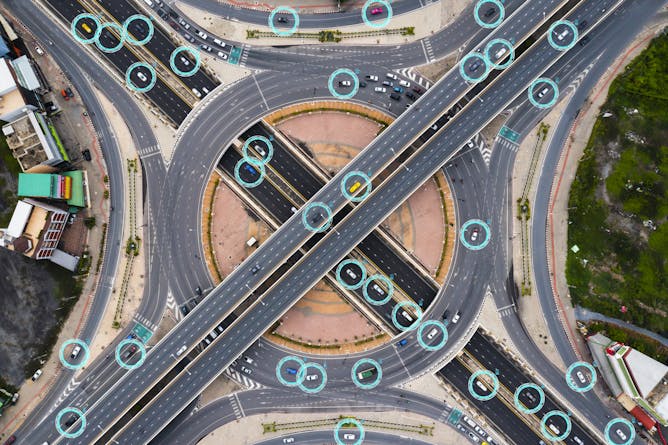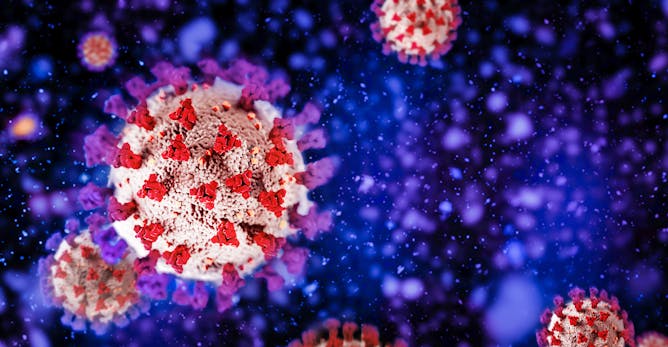|
As I write this, a huge snowstorm is bearing down on a large swath of the U.S. and we in New England can still see a good foot of snow on the ground following last weekend’s blizzard. How is our warming planet affecting winter storms? Atmospheric scientist Michael Rawlins from UMass Amherst unpacks this question and explains the many factors at play.
As automakers introduce new features that allow drivers to take their hands off the wheel, it seems we’re quickly approaching a day in which roads are filled with autonomous vehicles. But this could cause some problems. A group of researchers probed the potential environmental impact of driverless cars and found a lot to be concerned about. They describe their clever research to estimate the potential emissions uptick fully autonomous vehicles could bring.
As the omicron variant swept through the population, in many people it often evaded the antibodies that vaccines and boosters triggered. But our immune system has another line of defense: killer T cells. Immunology researchers Prakash and Mitzi Nagarkatti from the University of South Carolina explain the multiple ways our bodies fight pathogens, while addressing the question everyone wants to know: Has omicron gotten the U.S. population closer to herd immunity?
Also in this week’s science and research news:
If there’s a subject you’d like our team of science editors to investigate, please reply to this email.
|

Boston got socked with nearly 2 feet of snow in late January 2022.
Scott Eisen/Getty Images
Michael A. Rawlins, UMass Amherst
Winters are getting warmer, yet Bostonians were digging out from nearly 2 feet of snow from a historic blizzard in late January. Why is the Northeast seeing more big snowstorms like this?
|

Self-driving cars could lead to increased traffic and pollution if they spur more travel by car.
Witthaya Prasongsin via Getty Images
Giovanni Circella, University of California, Davis; Scott Hardman, University of California, Davis
Studies show that when people can ride in a car without having to operate it, they increase their car use. That could increase traffic and pollution, unless government puts a price on car travel.
|

Preliminary research suggests that the omicron variant may potentially induce a robust immune response.
Olga Siletskaya/Moment via Getty Images
Prakash Nagarkatti, University of South Carolina; Mitzi Nagarkatti, University of South Carolina
Some of the omicron variant’s unique properties – such as its ability to spread rapidly while causing milder COVID-19 infections – could usher in a new phase of the pandemic.
|
|
|
-
Oliver Wing, University of Bristol; Carolyn Kousky, University of Pennsylvania; Jeremy Porter, City University of New York; Paul Bates, University of Bristol
A street-by-street analysis shows where the risks are rising fastest and also lays bare the inequities of who has to endure America’s crippling flood problem.
-
Chris Impey, University of Arizona
With about 200 orbital launches scheduled and ambitious missions on everything from lunar bases to the search for life in the works, there’s a lot to watch in 2022. An astronomer explains the highlights.
-
Ryan E. Tompkins, University of California, Division of Agriculture and Natural Resources; Susan Kocher, University of California, Division of Agriculture and Natural Resources
After another devastating wildfire year in the West, the Biden administration has a plan to ramp up forest thinning and prescribed burns. Two foresters explain why these projects are so important.
-
Tamara Hew-Butler, Wayne State University
In some cases, fever reducers and extra fluid intake can weaken the body’s response to infection.
-
Esther Mullens, University of Florida
The key ingredients for a storm to undergo bombogenesis are an unstable atmosphere, temperature differences and high-speed winds in the upper atmosphere.
-
Gabriel Cardoso Carrero, University of Florida; Cynthia S. Simmons, University of Florida; Robert T. Walker, University of Florida
Land grabs spearheaded by wealthy interests are accelerating deforestation, and Brazil’s National Congress is working to legitimize them.
-
Hannah V. Carey, University of Wisconsin-Madison; Matthew Regan, Université de Montréal
Months not eating or moving don’t result in muscle wasting and loss of function for animals that hibernate. New research found gut microbes help their hosts hold onto and use nitrogen to build proteins.
-
Michael Levin, Tufts University; David Kaplan, Tufts University; Nirosha Murugan, Algoma University
Unlike humans, many animals are able to regenerate their limbs after losing them. Giving the body the right conditions for regrowth might allow people to recover lost limbs as well.
|
|